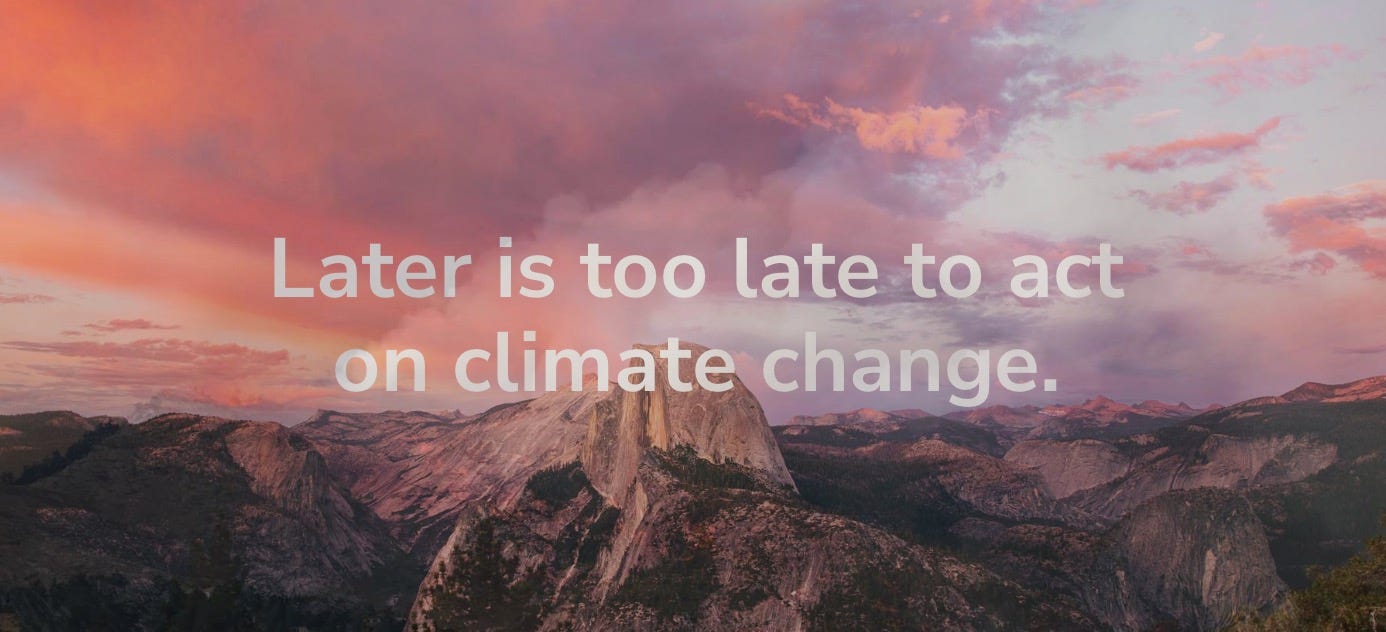2023 reached the historic milestone of 1.5 degrees Celsius (officially 1.48 degrees C) of warming. A stunning leap from 1.16 degrees C in 2022.
The main driver of the 2023’s record-breaking temperatures was fossil-fuel pollution, with El Niño playing a minor role, according to the EU’s Copernicus Climate Change Services.
Unfortunately, 2024 will be even hotter than last year. Without rapid, large-scale emission reductions, we are on our way to 2.0 degrees in the late 2030s. That’s far sooner than expected.
Given this terrifying reality, here’s 5 important Need-to-Knows:
Fossil-fuel pollution is having a devastating impact on our planet and on communities around world including ours.
The vast majority of people around the world want immediate and increased government action on climate.
Supporters of urgent climate action outnumber opponents 8 to 1.
A majority of people see solving climate change as a generational moral responsibility.
Most climate policies are welcomed by more than 65% of all people no matter what political party they vote for.
Need-to-Know: A strong majority of people around the world want immediate and increased action on climate
You may be surprised, as I was, that 2 thru 5 are based on a new public opinion survey of some 58,000 people in 23 countries representing 70+% of the global population. Countries surveyed include the U.S., Canada, U.K. , Australia, Colombia, Kenya, Nigeria, etc. (There’s a lot of insight in the survey’s 114 page report.)
The survey’s main takeaway: A majority of people of all ages and backgrounds believe the following:
It’s our responsibility to leave behind a world that’s safe and livable for future generations.”
Need-to-Know: The big “why” for wanting climate action is love for the next generation.
Later is too late, because climate change is putting our children’s futures at risk. People believe it is the responsibility of this generation to solve climate change and leave a thriving world for our children and grandchildren.
You wouldn’t know this is what people really believe because most people don’t talk about climate change. Nor do our actions reflect that belief. Why is that?
Climate change has been deliberately politicized.
Individual actions appear to be too insignificant to make a difference.
The survey digs into this and what can be done. I’ll get into that next time.
Until then, be well.
Stephen





